

 I started 2021 by finishing Deesha Philyaw’s sterling collection, The Secret Lives of Church Ladies, stories that sit adjacent to Black Southern church experiences and explore desires. I keep reading collections, including Dantiel W. Moniz’s Floridian brown-girl Gothic-lite Milk Blood Heat. In my claustrophobic wintery months, I traveled to parts of China with Te-Ping Chin’s The Land of Big Numbers, and then to a Europe I hadn’t quite seen before with Garth Greenwell’s, A Cleanness. (Greenwell’s book resists neat classification as “stories,” but, to me, reads like a novel made up of satisfying stand-alone parts). Venita Blackburn’s lithe stories in How to Wrestle a Girl managed acrobatic forms.
I started 2021 by finishing Deesha Philyaw’s sterling collection, The Secret Lives of Church Ladies, stories that sit adjacent to Black Southern church experiences and explore desires. I keep reading collections, including Dantiel W. Moniz’s Floridian brown-girl Gothic-lite Milk Blood Heat. In my claustrophobic wintery months, I traveled to parts of China with Te-Ping Chin’s The Land of Big Numbers, and then to a Europe I hadn’t quite seen before with Garth Greenwell’s, A Cleanness. (Greenwell’s book resists neat classification as “stories,” but, to me, reads like a novel made up of satisfying stand-alone parts). Venita Blackburn’s lithe stories in How to Wrestle a Girl managed acrobatic forms.
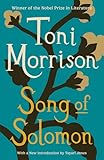
 I reread Toni Morrison’s Song of Solomon (that novel so gorgeously book-ended by attempts at flight!), then cracked open Octavia Butler’s Parable of the Sower for the first time. I’ve read other work by Butler, of course, but did not want to miss why folks were now calling this book prescience, on apocalypse, wall building, and making America great again.
I reread Toni Morrison’s Song of Solomon (that novel so gorgeously book-ended by attempts at flight!), then cracked open Octavia Butler’s Parable of the Sower for the first time. I’ve read other work by Butler, of course, but did not want to miss why folks were now calling this book prescience, on apocalypse, wall building, and making America great again.

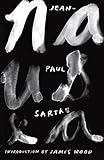
 In 2021, I crossed the water in Caleb Azumah Nelson’s poetic novel Open Water, then stayed in Europe with Jean-Paul Satre’s dread-filled Nausea. I crossed water again with Hiroko Oyamada’s unsettling novel The Hole, translated by David Boyd, and still can hear the screech of insects. I quickly finished Nadia Owusu’s memoir, Aftershocks, in which she fractures time and space with stories of her mixed heritage, her vulnerabilities, and her strength, on three continents.
In 2021, I crossed the water in Caleb Azumah Nelson’s poetic novel Open Water, then stayed in Europe with Jean-Paul Satre’s dread-filled Nausea. I crossed water again with Hiroko Oyamada’s unsettling novel The Hole, translated by David Boyd, and still can hear the screech of insects. I quickly finished Nadia Owusu’s memoir, Aftershocks, in which she fractures time and space with stories of her mixed heritage, her vulnerabilities, and her strength, on three continents.
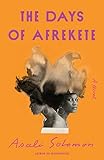

 I came back home to the States in Asali Solomon’s Philly in The Days of Afrekete—and with Dawnie Walton’s debut, The Final Revival of Opal and Nev, a novel made up of a chorus of voices so clear they’ll ring in your ear. I found myself reading a couple of writers connected to my adopted Virginia town, too: Henry Hoke’s weird, wonderful essay collection, Sticker, and Shannon McCleod’s portrait in stories, Whimsy.
I came back home to the States in Asali Solomon’s Philly in The Days of Afrekete—and with Dawnie Walton’s debut, The Final Revival of Opal and Nev, a novel made up of a chorus of voices so clear they’ll ring in your ear. I found myself reading a couple of writers connected to my adopted Virginia town, too: Henry Hoke’s weird, wonderful essay collection, Sticker, and Shannon McCleod’s portrait in stories, Whimsy.
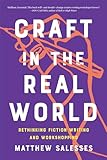
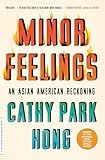
 Matthew Sallesses’s Craft in the Real World articulated and expounded on a thing for which I had not yet found words. Cathy Park Hong’s Minor Feelings spoke to me about the grief and violence that can collect around all that is left unsaid. The year is not quite over yet, and I’m still reading. I’ve started Carolyn Ferrel’s wonderfully splintered novel, Dear Miss Metropolitan. I’m just about to finish Callum Angus’s collection A Natural History of Transition. What I love about these stories in particular, and reading in general, is how precision and specificity can expose connection for me. While Angus’s characters live different lives than I do, I recognize myself among his words, too, in his evocation of climate-baffled geese confused in their migration, or in the ache of being stuck in a body—of change and then more change.
Matthew Sallesses’s Craft in the Real World articulated and expounded on a thing for which I had not yet found words. Cathy Park Hong’s Minor Feelings spoke to me about the grief and violence that can collect around all that is left unsaid. The year is not quite over yet, and I’m still reading. I’ve started Carolyn Ferrel’s wonderfully splintered novel, Dear Miss Metropolitan. I’m just about to finish Callum Angus’s collection A Natural History of Transition. What I love about these stories in particular, and reading in general, is how precision and specificity can expose connection for me. While Angus’s characters live different lives than I do, I recognize myself among his words, too, in his evocation of climate-baffled geese confused in their migration, or in the ache of being stuck in a body—of change and then more change.
More from A Year in Reading 2021 (opens in a new tab)
Don’t miss: A Year in Reading 2020, 2019, 2018, 2017, 2016, 2015, 2014, 2013, 2012, 2011, 2010, 2009, 2008, 2007, 2006, 2005









